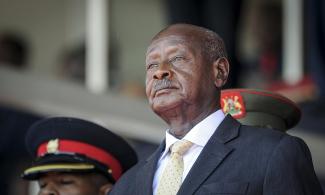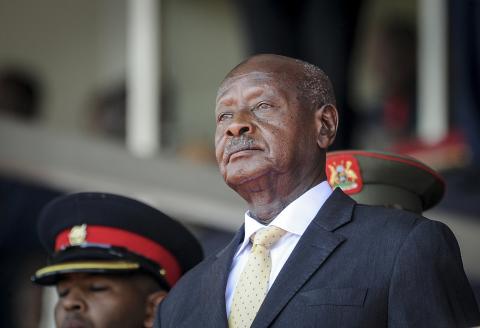
The government had recently ordered the NGOs to suspend operations, as part of a major escalation of its efforts to tighten control over civil society.
Global rights’ group, Amnesty International, has lambasted the Ugandan government for suspending 54 non-governmental organisations in the country.
The government had recently ordered the NGOs to suspend operations, as part of a major escalation of its efforts to tighten control over civil society.

The groups affected include the country’s most prominent rights organisation, Chapter Four, as well as religious, environmental and electoral democracy groups.
The government said the groups had failed to comply with legislation covering their activities, including operating with expired permits, not filing accounts or not registering with the authorities.
Some of the organisations ordered to close had taken part in an election monitoring operation on polling day in January 2021 which was raided by security forces and during which several of their leaders were arrested.
The hotly disputed poll saw President Yoweri Museveni returned for a sixth term in office after a violent campaign marked by the harassment and arrest of opposition figures, attacks on the media and the deaths of several dozen people.
Reacting in a statement on Friday, Amnesty International asked the Ugandan government to immediately rescind the suspension order.
The AI release partly reads, “The suspension is intended to restrict the rights to freedom of expression and association and stop the activities of independent civil society organizations that are perceived as critical of the authorities.
“According to the Uganda National NGO Forum, most of the organizations were not informed of the Uganda NGO Bureau’s decision or given an opportunity to respond in advance.
“Uganda’s 2016 NGO Act imposes burdensome requirements for application for permits for NGOs with multiple layers of registration with periodic renewal applications, and organisations are required to have memorandums of understanding with the district they operate in. There is also lack of clarity over which organizations fall under this regulatory regime.
“The suspension of the organizations is arbitrary, as it goes against Section 33 (2) of the NGO Act, which requires the Bureau to give 30 days’ notice in writing to permit holders to enable them to show cause why the permit should not be revoked.
“Suspension of independent civil society organizations simply for carrying out their work is an attack on human rights, including the rights to freedom of expression and association. Suspending civil society organizations also exposes those organizations to additional legal risks if they are unable to pay staff or suppliers.
“Many of the organizations affected work in critical areas such as legal practices to help poor or marginalized people. Others work on accountability and transparency in the oil sector, and some monitored human rights in the context of the elections. To shut down organizations working so closely with Ugandans abruptly will hurt people who rely on their services or advocacy.
“The rights to freedom of expression and association are guaranteed under Articles 9 and 10 of the African Charter on Human and Peoples’ Rights to which Uganda is a state party. Accordingly, the African Commission on Human and Peoples’ Rights issued guidelines on freedom of association and assembly as provided for in the African Charter, that among other things prohibits states from compelling associations to register to be allowed to exist and to operate freely. Further, informal organisations shall not be punished or criminalized under the law or in practice based on their lack of formal status. This decision by the NGO Bureau is a clear demonstration of the repressive nature in which Ugandan authorities have continued to clamp down on civic space and human rights.
“The NGO Bureau is mandated to play a regulatory and facilitative role in creating an enabling environment for non-profit organizations in Uganda, but this has not been the case in the recent past.
“We acknowledge the positive discussions held between the Minister of Internal Affairs and Civil Society Leaders on 24 August and implore the minister to expeditiously follow through the commitments made to redress the anomalies in the suspension of some of the affected NGOs and establish an Adjudication Committee as required by the law. We further call on authorities in Uganda to ensure that civil society actors involved in promoting fundamental rights can freely exercise their rights consistent with Ugandan Constitution and the country’s international human rights obligations including the International Covenant on Civil and Political Rights and the African Charter on Human and Peoples’ Rights.”